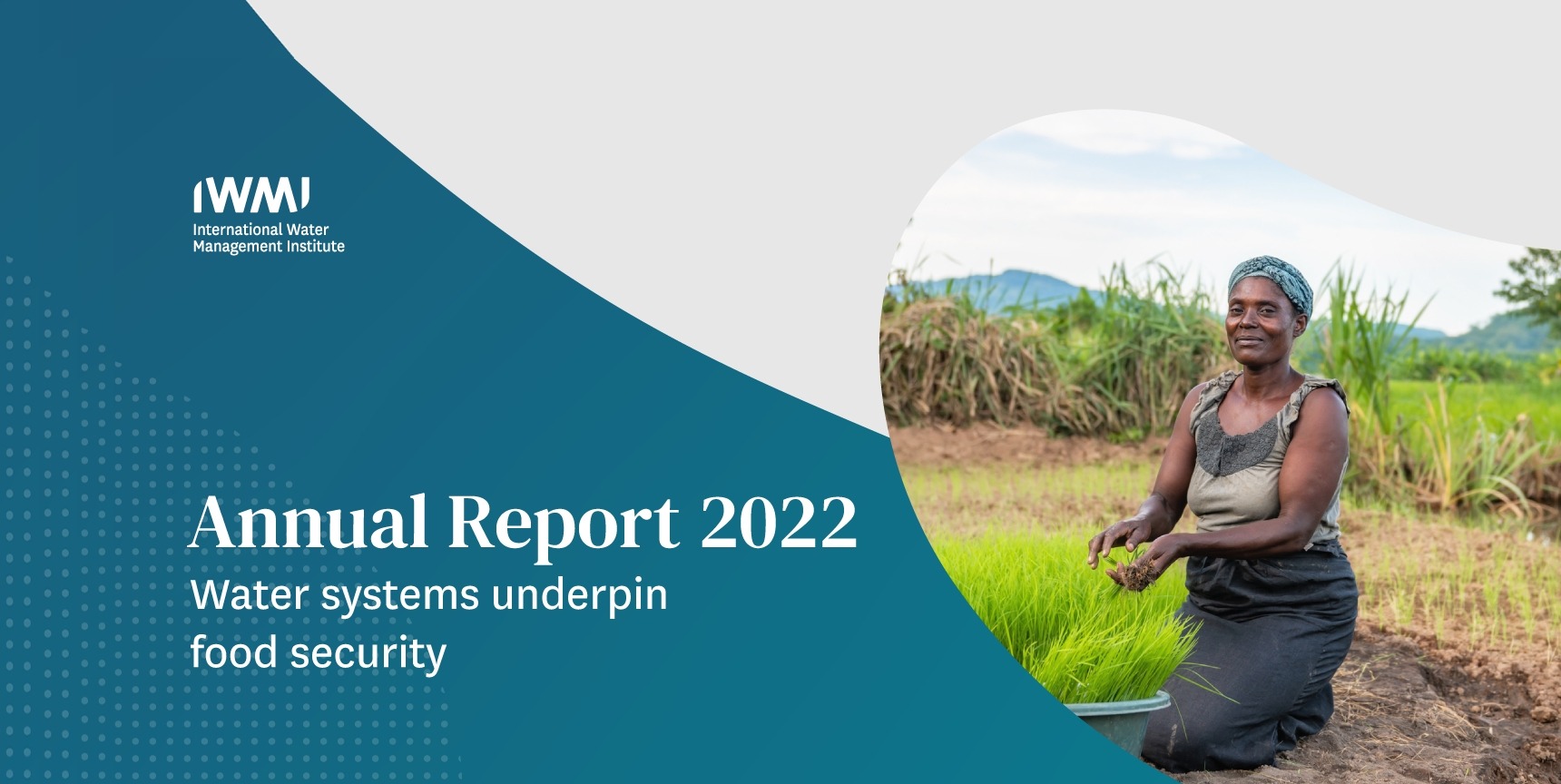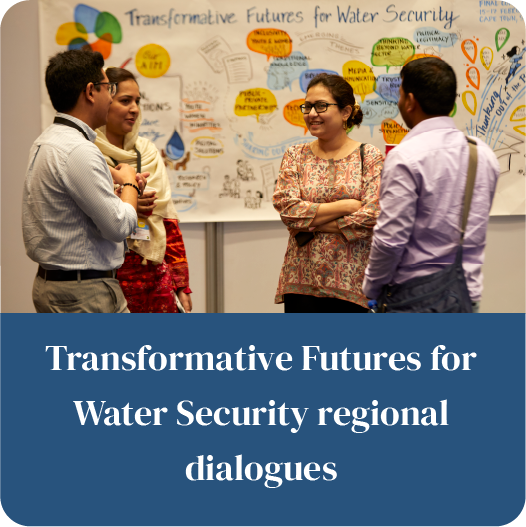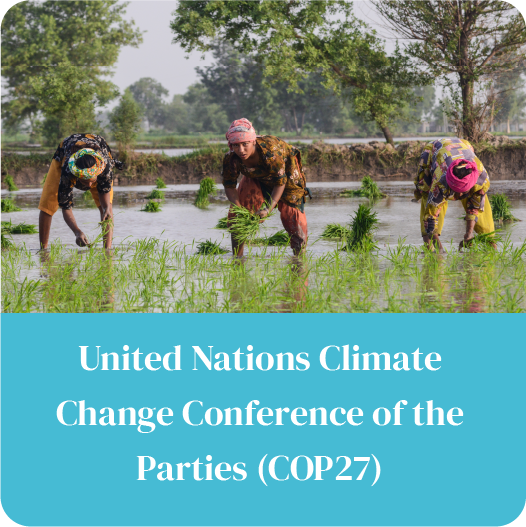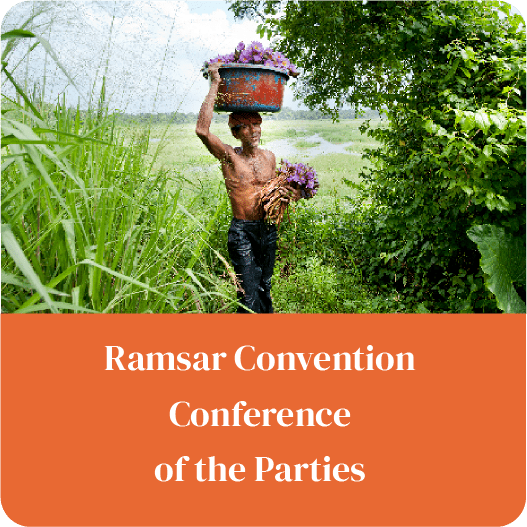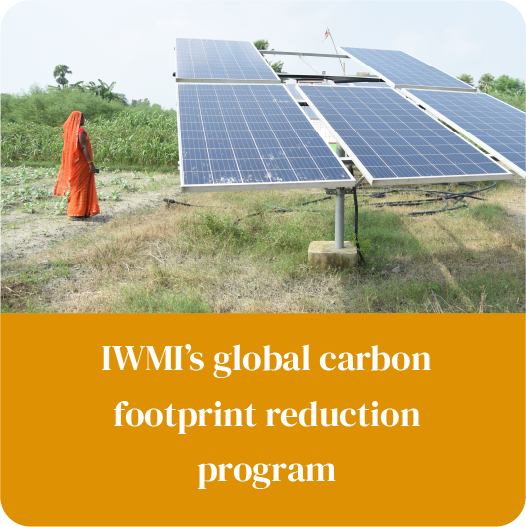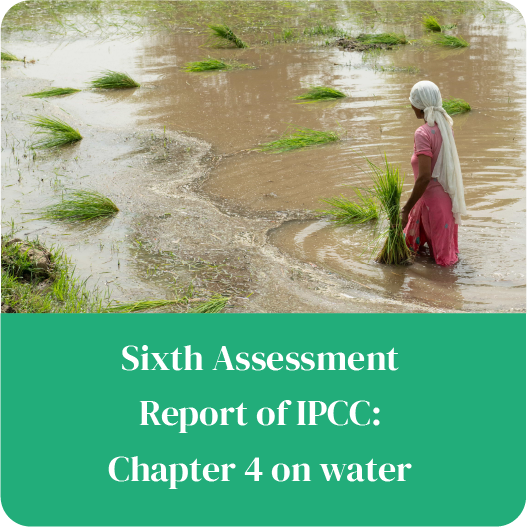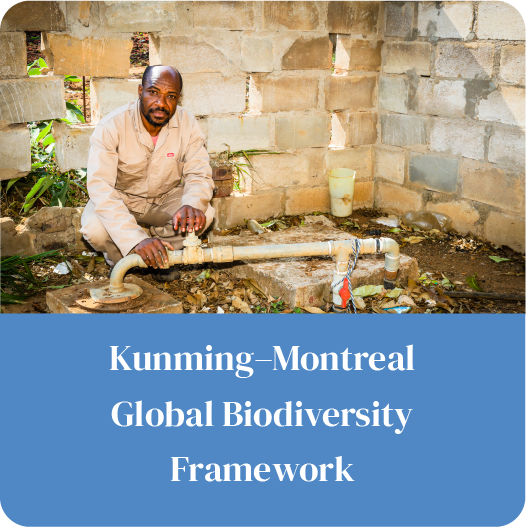Water systems
underpin food security
Annual Report 2022
Message from the Board Chair and the Director General
The year 2022 offered a glimpse into a future of heightening pressures on water security. In response to these challenges, IWMI sought a range of innovative water-smart solutions, benefitting communities, national economies and river basins. Our researchers worked closely with the governments of countries most impacted by extreme weather events to support their disaster responses, in addition to helping them plan for future risks. As we look ahead, IWMI is taking on a more proactive role in ensuring that we make a stronger contribution to supporting policy change and implementation, and to using evidence from research to help shape the global water agenda.


IWMI at a glance

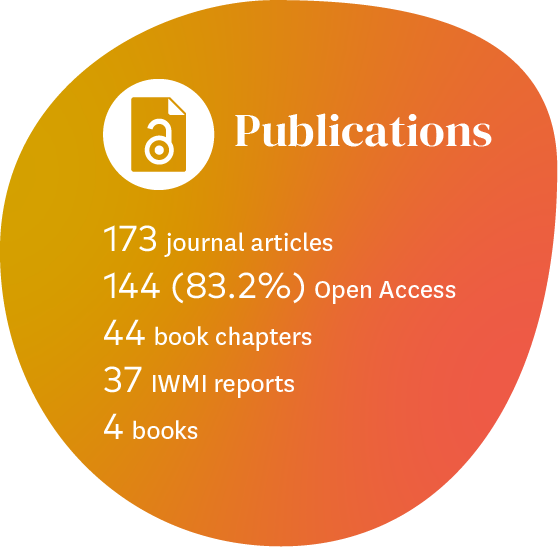

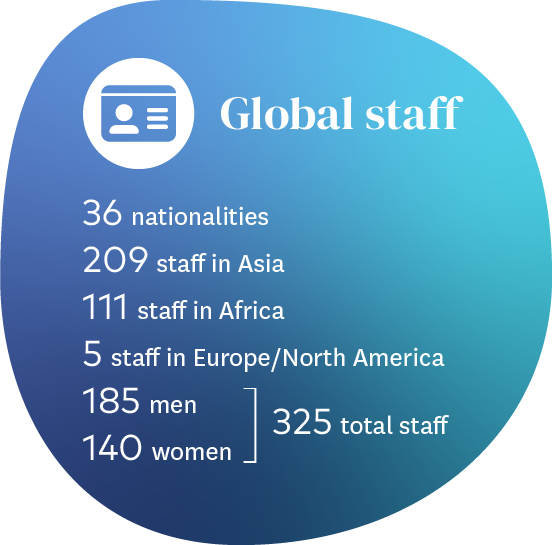

Major trends shaping IWMI's strategic
and operational context in 2022
Water, Food and Ecosystems
Moves to alleviate global hunger unfortunately made minimal progress between 2021 and 2022, persisting well above pre-COVID-19 levels and impacting 9.2% of the global population in 2022, up from 7.9% in 2019. Similarly, the economic recovery noted in 2021 slowed in 2022, largely due to the war in Ukraine. This conflict exacerbated the consequences of escalating prices for food, agricultural inputs and energy, impeding the progress in employment and livelihoods of the most vulnerable communities.
Advances have also been limited in addressing ecosystem losses. According to the Intergovernmental Science-Policy Platform on Biodiversity and Ecosystem Services (IPBES), up to 75% of the Earth’s land surface is significantly altered by human activities. This loss of biodiversity affects ecosystems’ ability to provide services, including clean water and climate regulation.
Water, Climate Change and Resilience
Global temperatures have risen by approximately 1.2 degrees Celsius above pre-industrial levels. In 2022, multiple records for extreme weather events were broken. Across every continent, climate change led to more frequent and severe storms, floods, heatwaves and droughts. In Pakistan, more than 32 million people were displaced by the extreme floods that submerged one third of the country and wreaked havoc on its infrastructure. In Ethiopia, Somalia and Kenya, more than 20 million people needed food assistance – an increase of over 70% compared to the 2016 and 2017 food crises in the Horn of Africa.
Each year, increasing numbers of countries face extremely high levels of water stress, while global water demand continues to rise with population growth and economic development.
Water, Growth and Inclusion
As the effects of the COVID-19 vaccines started to take effect in 2022, many developed countries’ economies were able to begin their recovery. However, inflation and currency devaluation continued to challenge social and economic development in the Global South by eroding purchasing power and affecting trade and foreign exchange reserves. The escalation of the Russia-Ukraine conflict in February 2022 further strained global agricultural and food supply chains, which were already reeling from the effects of the pandemic. This conflict led to mounting fuel and food prices, added inflation and supply chain disruptions, placing a significant burden on Africa’s economies and food systems.
These global socio-political trends, including rising protectionism and increased global inequality, marked 2022 as a year of sustained low growth. Global economic growth in 2022 was only half of the previous year’s annual rate, the sharpest decline since the global economy rebounded after a recession more than 80 years ago. Diminishing water supplies further exacerbated this slow growth, with some regions potentially facing a 6% decline in GDP by 2050 due to water-related losses in agriculture, health, income and prosperity. Ensuring a consistent water supply amid increasing scarcity is crucial for achieving global poverty alleviation goals.
Water Data Science and Digital Innovation
Data collection and analysis are becoming increasingly critical for water security. Advanced technologies, including remote sensing and artificial intelligence (AI), are being used to gather and analyze water-related data to inform decision-making. According to this year’s Global Water Policy Report, national governments consider information and data about water that can be used within their own countries to be the most valuable service coming from international scientific efforts.
However, the persisting gaps in knowledge, data and information sharing services slow our progress towards achieving global water security. The fragmentation of water systems science and the lack of data in certain regions of the world hinder the work of researchers in developing, informing and implementing comprehensive solutions.
Stories of change
Major awards

2022 World Food Forum Transformative Research Challenge (TRC): Special prize
Sidra Khalid (Senior Research Officer – Gender and Social Inclusion, IWMI, Pakistan) and Najeeb Ullah (Monitoring Evaluation and Learning Specialist, IWMI, Pakistan) won the special prize at the 2022 Transformative Research Challenge (TRC) hosted by the World Food Forum. The prize was awarded for their research pitch on ‘Transforming nutritional practices and livelihoods through improved fish farming in Pakistan’. The TRC recognizes outstanding research that will have a positive impact on global and local agri-food systems. It aims to inspire research and innovation to end hunger and transform agri-food systems.

2022 Derek Tribe Award
Dr. Lisa-Maria Rebelo (Principal Researcher, Earth Observation for Sustainable Development, IWMI, Sri Lanka, and Lead Scientist, Digital Earth Africa) was the recipient of the 2022 Derek Tribe Award. Lisa-Maria received the award in recognition of her work on remote sensing, natural resource management, wetland monitoring and assessment, basin water accounting and water productivity across the African continent and in South and Southeast Asia.
Key events
9th World Water Forum
The 9th World Water Forum was held in Dakar, Senegal, on March 21–26, 2022. It was the first World Water Forum to be held in sub-Saharan Africa and brought together over 5,000 delegates. IWMI experts participated in 17 events, signed the Water and Nature Declaration, and engaged with a wide range of stakeholders in the water sector to share our vision for strengthening water security and climate resilience across West Africa and around the world.
MENA Climate Week 2022
The first-ever MENA Climate Week was held in Dubai, United Arab Emirates, on March 28–31, 2022. The event helped set the agenda for the United Nations Climate Change Conference of the Parties (COP27), bringing the focus of climate adaptation and mitigation efforts to a region that is facing significant risks. IWMI had the opportunity to interact with diverse stakeholders, including policymakers, development practitioners and donors, and helped position our research priorities to continue to be relevant.
World Water Week 2022
World Water Week was held in Stockholm, Sweden, on August 23–September 1, 2022. With the theme ‘Seeing the Unseen: The Value of Water,’ the event appreciated water from multiple angles: its value for people, development, nature and climate change, and the financial and economic value of water. A key message was that we need transformation rather than just problem-solving. This was highlighted with the launch of the Transformative Futures for Water Security initiative (TFWS) by IWMI and partners at the event.
Africa Climate Week 2022
Africa Climate Week was held in Libreville, Gabon, on August 29–September 2, 2022. The event, seen as an important step prior to the start of COP27, engaged and empowered stakeholders to drive climate action across countries, communities and economies. Together with partners, IWMI hosted a side event titled ‘Climate crisis is a water crisis: Water management approaches to strengthening climate resilience in Africa’, which highlighted the findings of our research-for-development activities.
Pakistan Water Week 2022
Pakistan Water Week 2022 was held in Islamabad, Pakistan, on October 24–28, 2022. In a year marked by extreme droughts and flooding in Pakistan, IWMI co-organized the event, which aimed to address the systemic cross-sectoral thinking across water, energy, food and environmental systems for climate-resilient development in Pakistan. The conference was designed to shape the focus of and agenda for water planning and management going forward.
Financials
IWMI was financially stable in 2022 with a surplus of USD 0.48 million. There was a slight drop in grant revenue as well as expenses, but bilateral revenue increased by 16%. Current assets increased significantly, enabling a sound working capital ratio. IWMI received an unmodified audit opinion on its 2022 annual financial statements and satisfactorily completed several mandatory project audits as per grant agreements. The Institute continues to ensure that it complies with the donor regulatory requirements, and delivers accurate and timely financial reports to its donor agencies. IWMI works closely with many ‘Communities of Practice’ in the Business Operations & Finance Group of CGIAR to further strengthen its policies and processes to have a robust internal control system. IWMI has taken initial steps to move to ‘One Corporate System’, the Project and Financial Management System used by CGIAR.
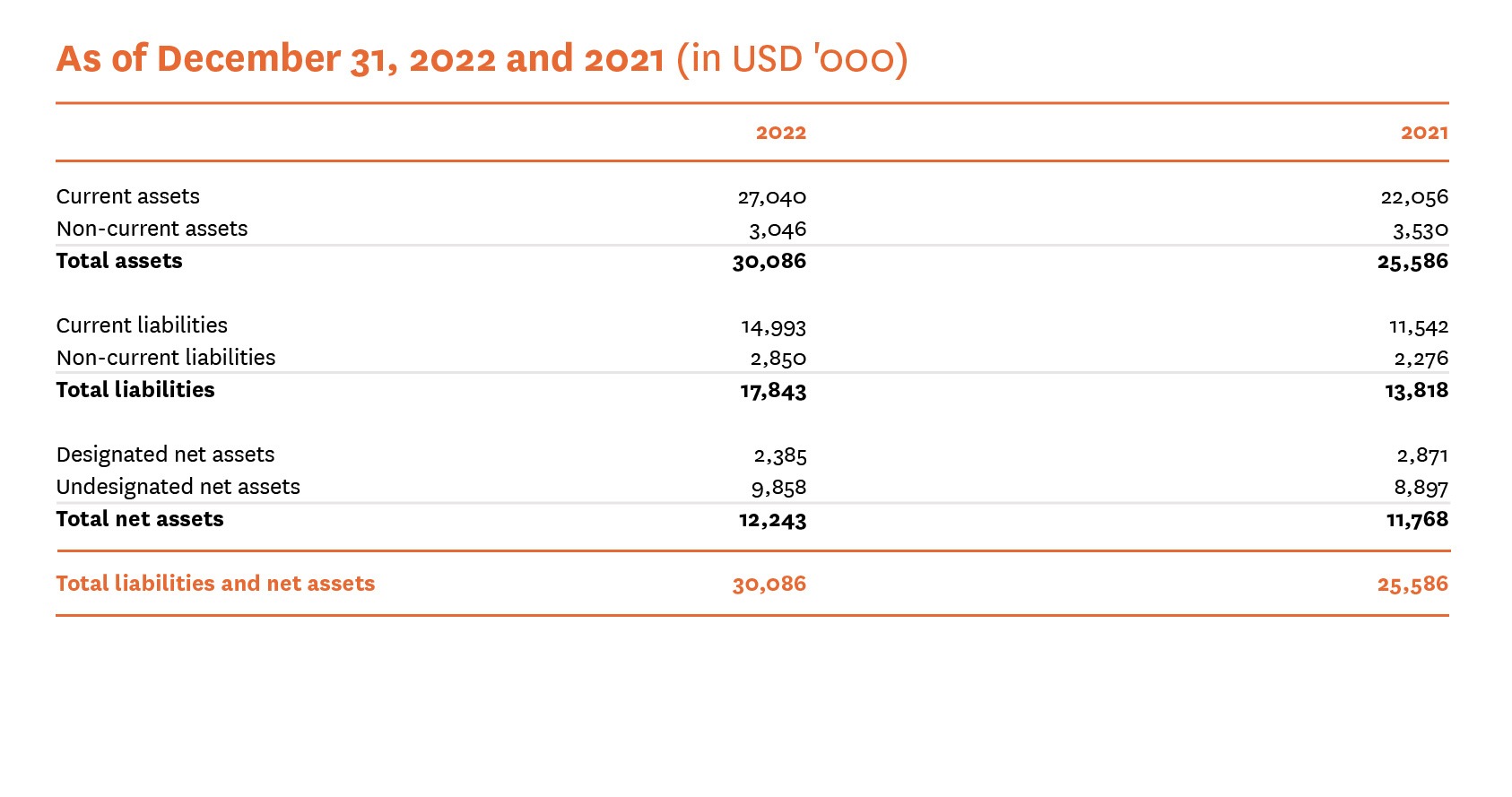
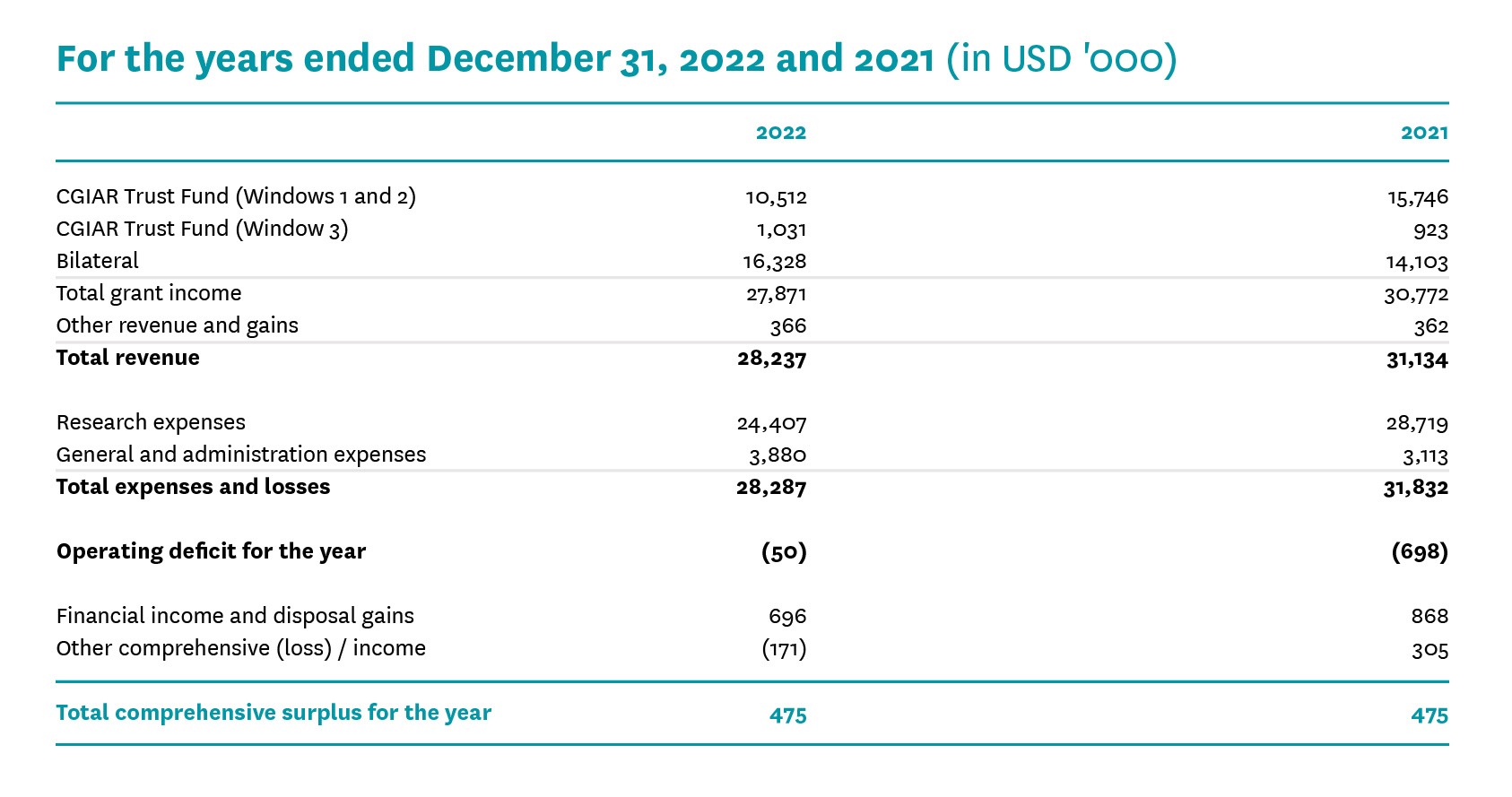
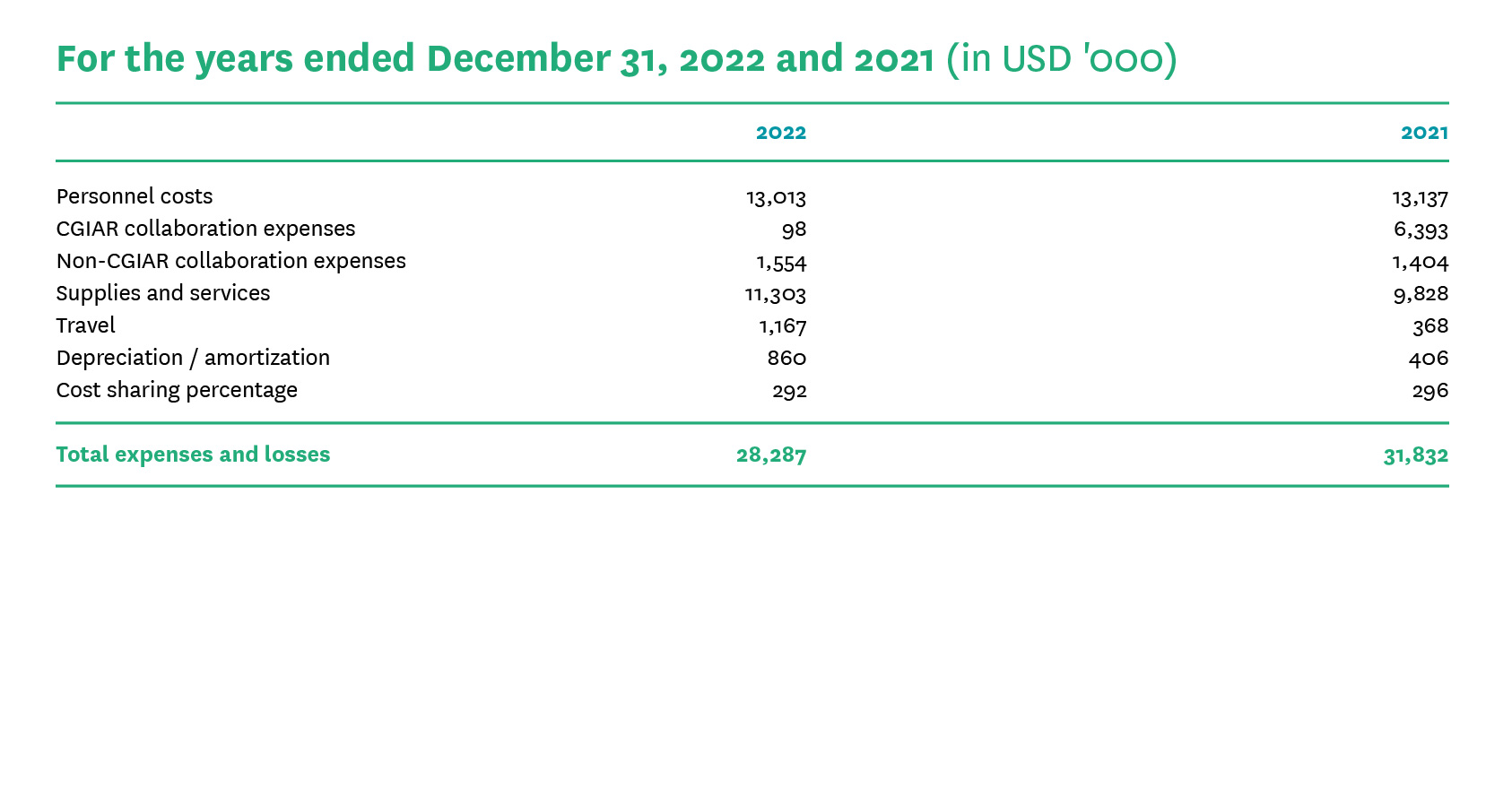
Principal investment partners
IWMI research receives support from Funders contributing to the CGIAR Trust Fund as well as grants from various organizations.
We gratefully acknowledge their support for our collaborative efforts to achieve water security across the developing world.
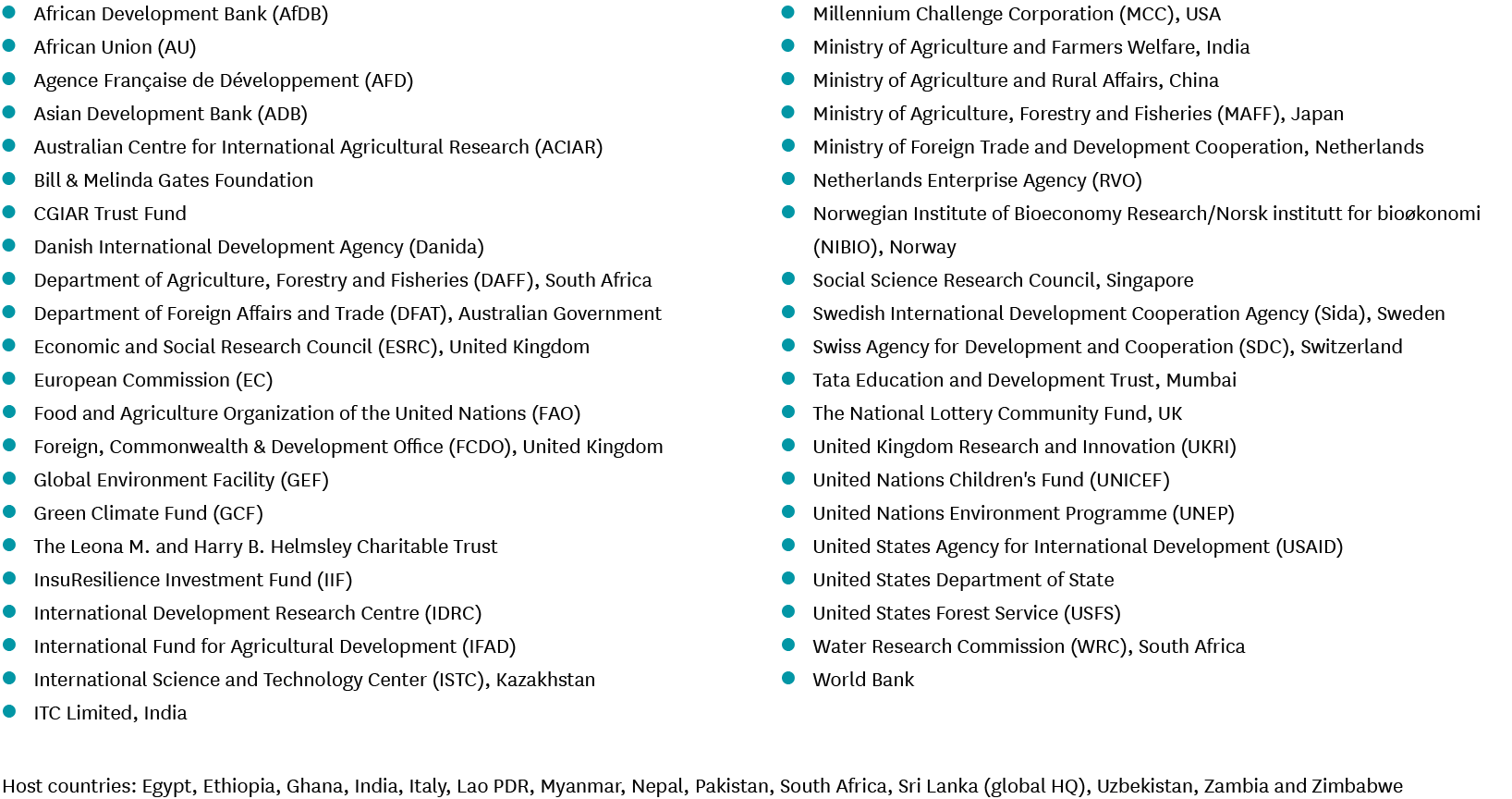
Partnerships
IWMI prioritizes partnerships that put in place the relationships needed to link research to local change and innovation, and to policy and institutional change at national, regional and global levels.
During 2022, IWMI increased its focus and intent to leverage the power of partnerships more effectively to connect our research capabilities to implementation and impact. This approach aligns closely with the CGIAR Engagement Framework for Partnerships and Advocacy. Guided by this framework, IWMI is working more closely with government agencies, research institutes, the private sector, donor agencies, network platforms, scaling organizations and civil society organizations. Together, we are prioritizing cooperation with coalitions at local, basin and national levels to collectively contribute to a transformative water security agenda.
Moving forward, IWMI will utilize its unique and extensive field-based presence to further embed its approach to partnerships for catalytic action. This approach recognizes that research contributions to innovation systems are only possible through committed partnerships.
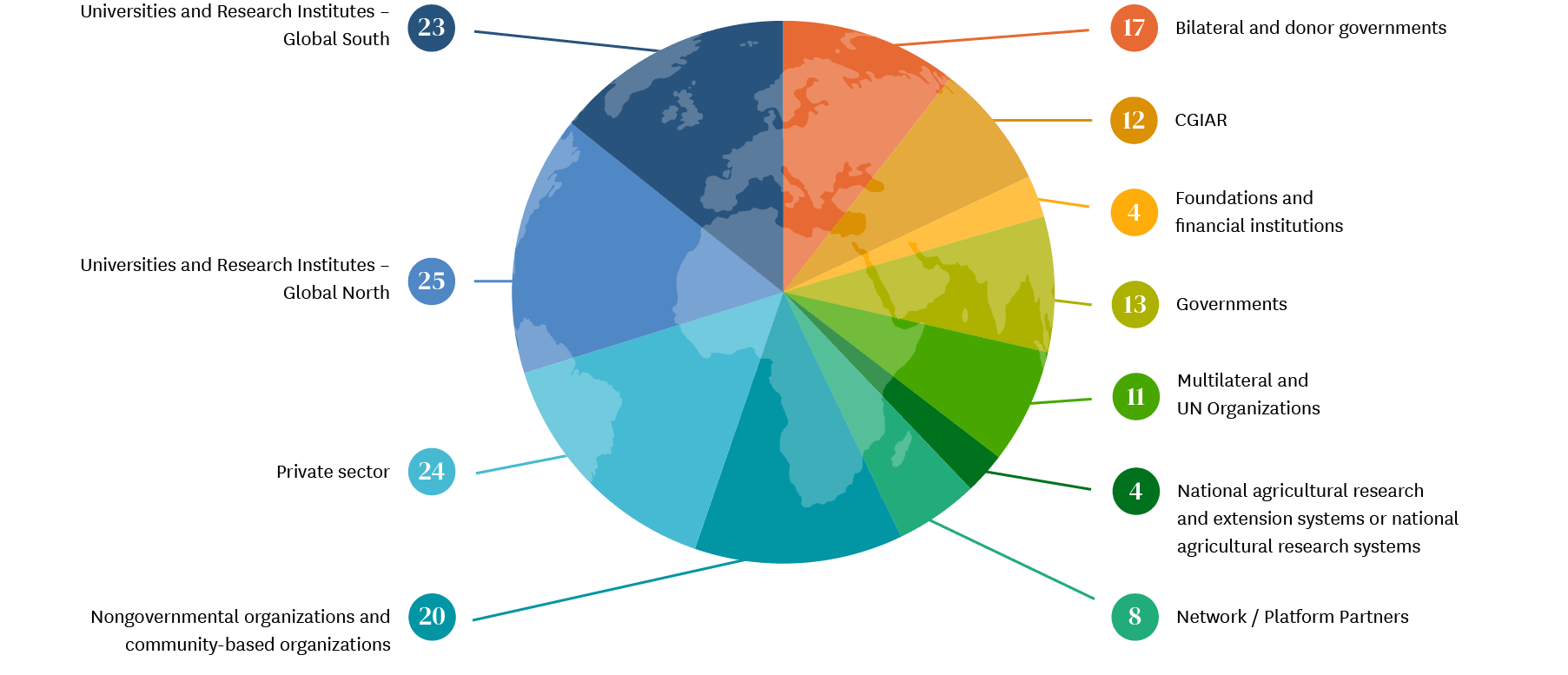
Board of Governors
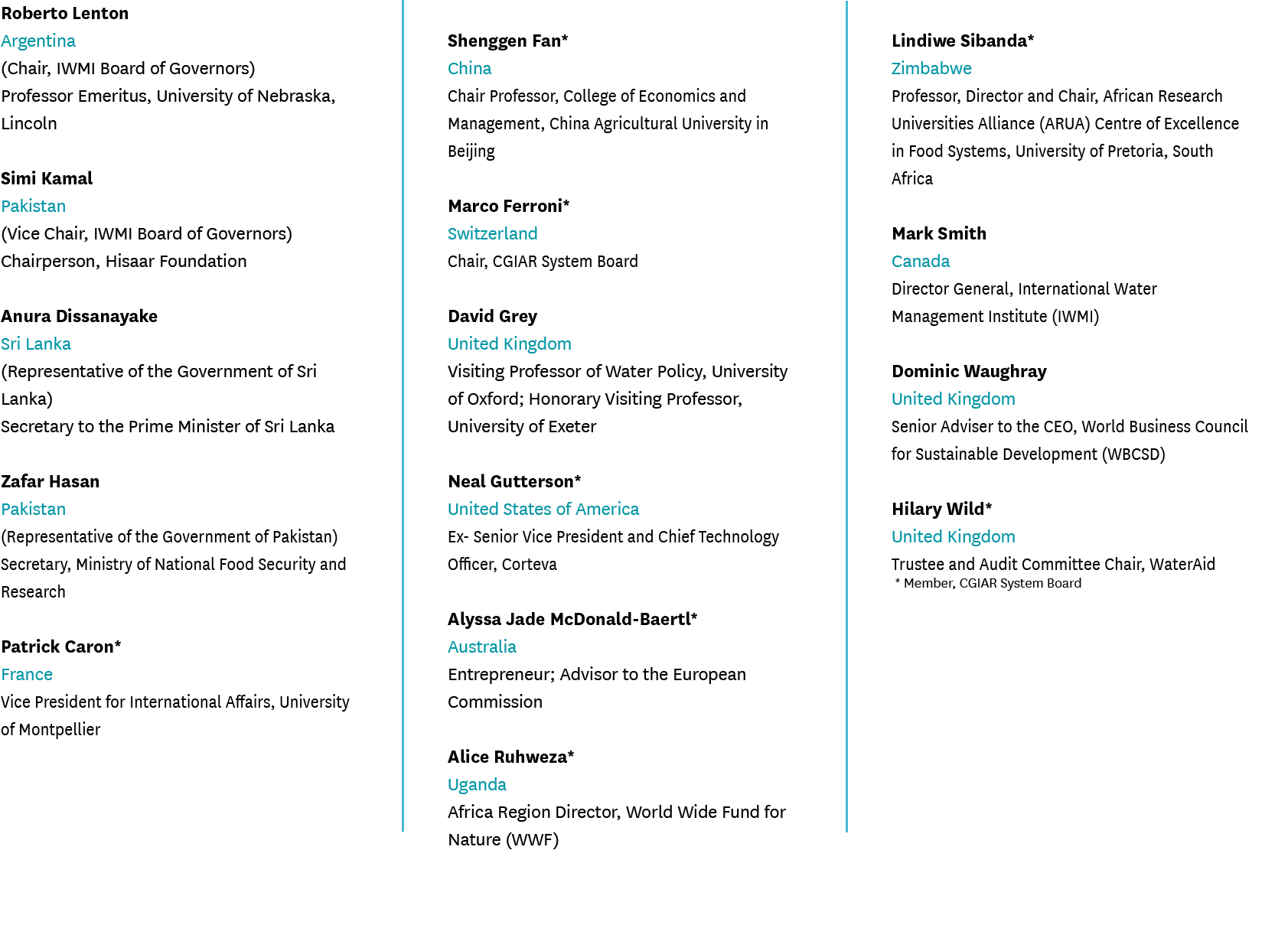
Our locations
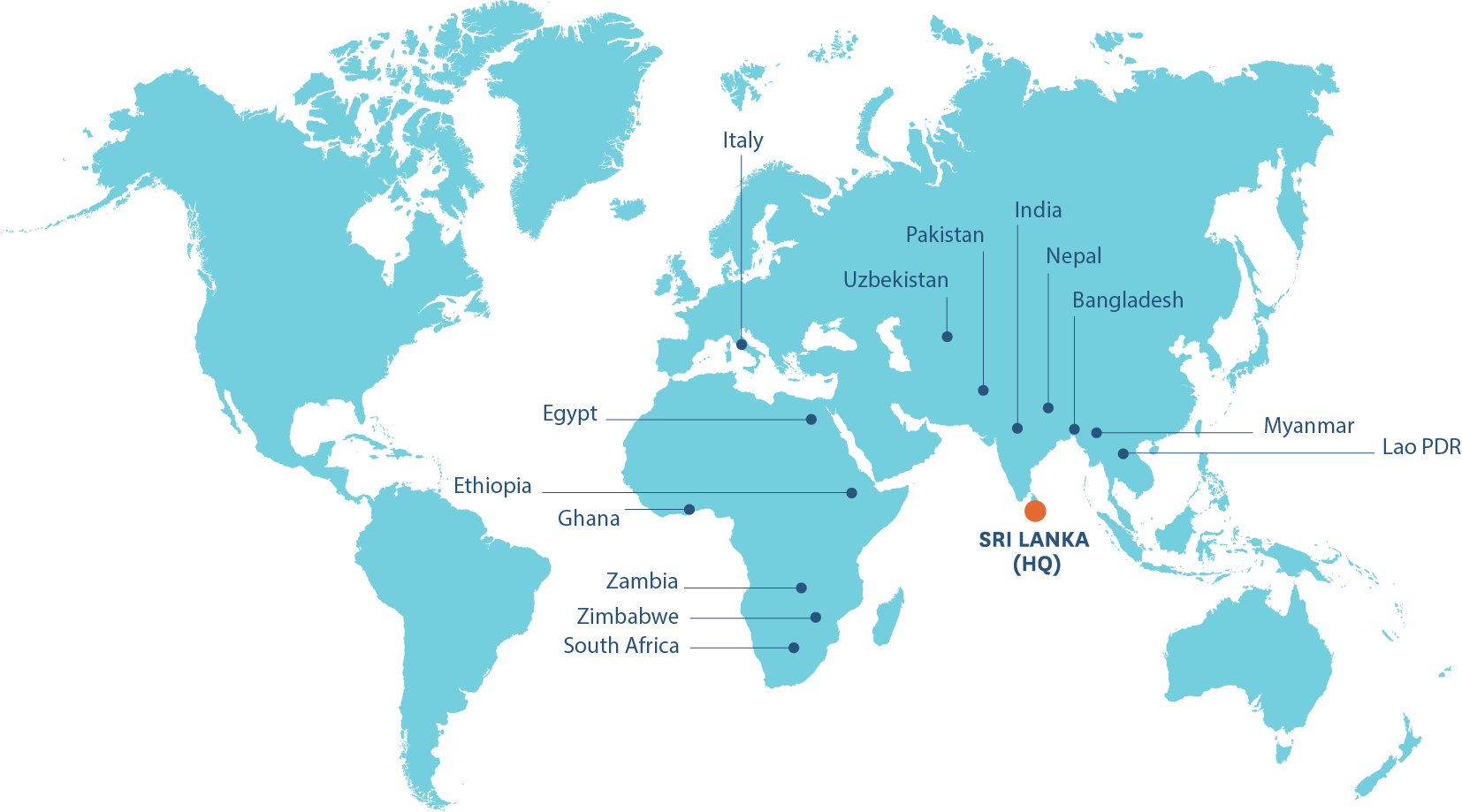
IWMI Annual report 2022. Colombo, Sri Lanka: International Water Management Institute (IWMI). DOI: https://doi.org/10.5337/2023.220


